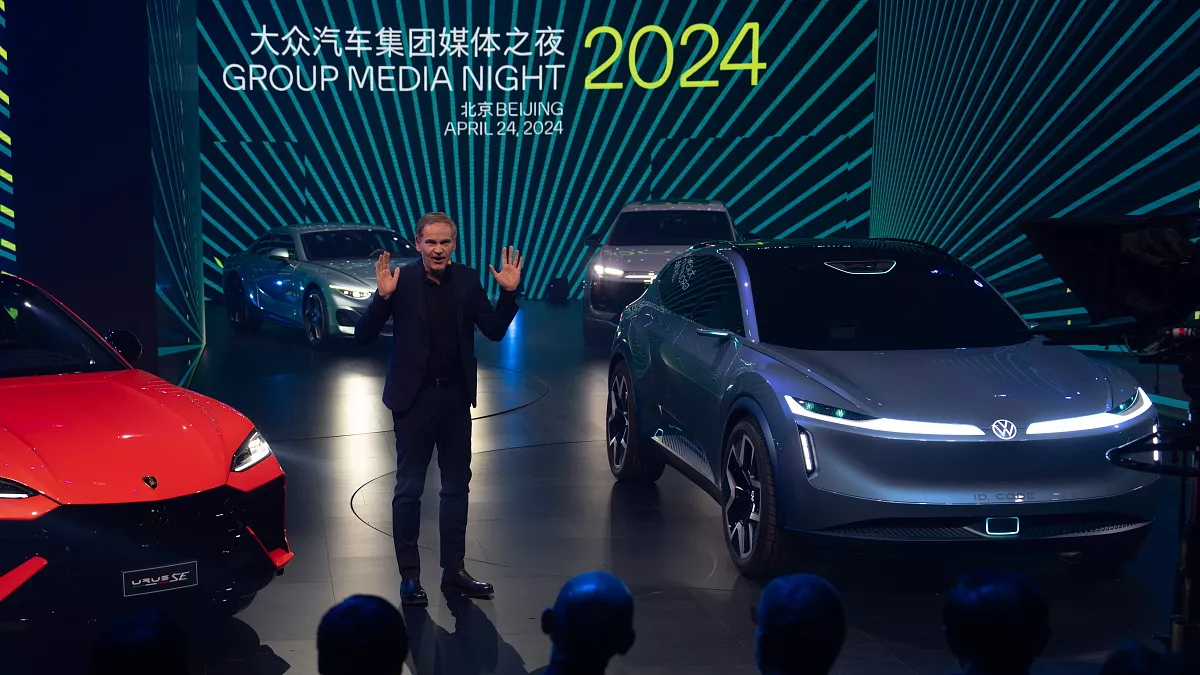China’s relentless pursuit of automotive innovation was showcased at the nation’s premier auto exhibition, signaling a paradigm shift in the global automotive landscape. Established players such as Volkswagen and Nissan are compelled to adapt to the disruptive forces unleashed by China’s electric car manufacturers to retain their foothold in the world’s largest automotive market.
At the Beijing Auto Show, Nissan and Toyota announced collaborations with major Chinese technology firms, responding to the burgeoning demand for AI-driven online connectivity in automobiles among Chinese consumers. This strategic alignment underscores the imperative for traditional automakers to embrace digital transformation to meet evolving customer preferences.
Among the trailblazers, ZEEKR, a subsidiary of Geely, unveiled groundbreaking features such as swiveling front seats and a sizable flat screen, redefining the concept of vehicular comfort and entertainment. The ZEEKR Mix, hailed as an “intelligent living room on wheels,” epitomizes the convergence of automotive and lifestyle experiences, reflecting the industry’s pivot towards customer-centric innovation.
The proliferation of electric vehicle (EV) manufacturers, buoyed by government incentives, has precipitated a fierce pricing war, poised to reshape the industry landscape through consolidation. Geely’s ZEEKR division, despite its nascent stage, epitomizes this ethos, striving to achieve profitability amidst intense competition.
While EVs have seized the spotlight, hybrids emerge as a viable alternative, with industry stalwart BYD showcasing dual-mode plug-in vehicles poised to redefine eco-friendly mobility. However, Chery, a traditional automaker, advocates for a balanced approach, envisioning a future where fuel-powered, hybrid, and electric vehicles coexist harmoniously.
With domestic competition intensifying, Chinese manufacturers are eyeing international markets, triggering apprehensions in Europe and the U.S. over potential disruptions to established automotive ecosystems. As Chinese automakers expand their global footprint, collaborations with foreign counterparts, like the BYD factory in Brazil, illustrate the evolving dynamics of the global automotive landscape.
Foreign brands, cognizant of China’s pivotal role, are accelerating efforts to integrate digital connectivity into their offerings. Volkswagen’s CEO underscored the market’s role as a catalyst for innovation, emphasizing the need for agility to navigate the dynamic landscape.
Toyota’s collaboration with Baidu and Volvo’s emphasis on user-centric digitalization exemplify the convergence of automotive and tech sectors, underscoring the imperative for seamless integration of digital services. As the industry embraces digital transformation, the focus shifts towards utility-driven technology solutions that enhance user experience.
In this era of unprecedented change, China’s auto show serves as a crucible for innovation, driving the industry towards a future defined by connectivity, sustainability, and customer-centricity. As the automotive landscape undergoes seismic shifts, adaptation and collaboration emerge as linchpins for sustained relevance and success in the evolving marketplace.



